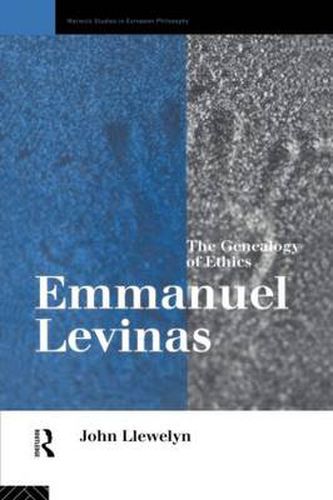Readings Newsletter
Become a Readings Member to make your shopping experience even easier.
Sign in or sign up for free!
You’re not far away from qualifying for FREE standard shipping within Australia
You’ve qualified for FREE standard shipping within Australia
The cart is loading…






This is a study of Levinas’s work. Following his philosophical works in roughly chronological order, it shows how Levinas’s argument - that metaphysics is anarchically ethical - departs from the tradition culminating with Hegel from the thinking of contemporaries like Husserl and Heidegger. He examines in detail the relationship between Nietzsche’s scripture after the death of God - so central to post-structuralism and post-modernism - and looks at the significance of the interruption by Levinas’s genealogy of ethics of Nietzsche’s genealogy of morals. The text argues that in this time of crisis in ethics, Levinas’s work provides a valuable alternative way to understand ethics. It asks how, after Auschwitz, we can afford to leave Levinas unread. Written for students of continental philosophy and theology, as well as for readers pursuing more advanced research, this book aims to bring the work of Levinas to a wider audience. 1
$9.00 standard shipping within Australia
FREE standard shipping within Australia for orders over $100.00
Express & International shipping calculated at checkout
This is a study of Levinas’s work. Following his philosophical works in roughly chronological order, it shows how Levinas’s argument - that metaphysics is anarchically ethical - departs from the tradition culminating with Hegel from the thinking of contemporaries like Husserl and Heidegger. He examines in detail the relationship between Nietzsche’s scripture after the death of God - so central to post-structuralism and post-modernism - and looks at the significance of the interruption by Levinas’s genealogy of ethics of Nietzsche’s genealogy of morals. The text argues that in this time of crisis in ethics, Levinas’s work provides a valuable alternative way to understand ethics. It asks how, after Auschwitz, we can afford to leave Levinas unread. Written for students of continental philosophy and theology, as well as for readers pursuing more advanced research, this book aims to bring the work of Levinas to a wider audience. 1